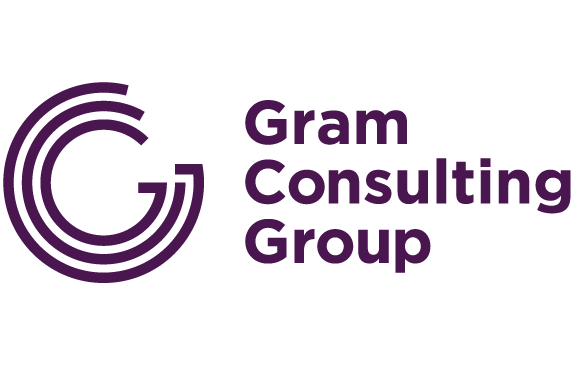
25 Jun Positive Outcomes in Tough Times
You may have observed some interesting responses and reactions in your colleagues, friends, the media and our commercial and political leaders over the last six months to the current economic downturn. Has it been all Doom and Gloom? Overt Optimism? Head in the Sand?
You may also have observed your own response to these tougher times. Are you fearful? Are you optimistic? Are you unsure? How have you responded to tough times?
Research now proves that our reactions and responses to tough times – whether personal or professional, global, or local, social or financial – are the moments that define our ability to create opportunities for positive outcomes.
WHAT IS A TOUGH TIME?
It is likely that many of you reading this article have experienced disrupting life circumstances or ‘tough times’. Each of us will have our own unique definition of what a ‘tough time’ is. A client recently told me he ‘thrived under pressure’.
I questioned his definition of pressure. Similarly with tough times the definition is that this will be difficult, not easy and it will always involve change where you will never be the same again. So consequently with change comes opportunities to create new responses, new habits, new strengths and self knowledge.
OUR UNIQUE RESPONSE TO TOUGH TIMES?
Each of us has a personal psychological internal response to tough times and change.
Self understanding is an essential tool in coping. In his excellent work on resiliency (The Resilency Advantage 2007) Al Siebert observes
Self knowledge enhances your resiliency because your way of being resilient must be your own self-created, unique version. Self knowledge comes from self-observation, experimenting and being receptive to feedback of all kinds.”
Some powerful questions to ask yourself might be:
- What is my internal voice saying to me?
- How does this feel to me?
- What am I experiencing right now?
Observing ourselves, our responses and our feelings to events and circumstances gives us an opportunity to reflect and choose the way we will react to our environment and circumstances.
Again Siebert reflects:
“The observing place within you is where you develop conscious choices about how you will interact with the world you live in. Experiencing choices leads to feelings of freedom, independence and being in control of your life” (Siebert, The Resiliency Advantage pg 33)
When tough times and change occurs people often feel their sense of control is affected. Studies on perceived control (e.g. Gale & Batty, 2008) show that having a healthy sense of control over one’s life, work and environment is important for both physical and psychological well-being. A low, or external, sense of control may result in feeling depressed, anxious and unable to cope.
A client recently lost her well paid hard earned job in the finance industry. Her reality as stated by many recruiters was that she was unlikely to get another job with similar pay and conditions for at least two years. She has financial commitments. This was her tough time. Her initial goals and questions in our sessions were centred around the urgency of getting exactly the same job in the finance industry. Re-creating what she already had.
Like many people faced with this dilemma she responded in a reactive and process driven way. She contacted the recruiters, polished up her resume and got to work on her network. After many negative responses to her job hunt she came to me to discuss her frustrations. We then spent time asking new, different and broader questions. How could she view this situation differently? What other solutions may there be to this situation? What possibilities or opportunities are their for other changes at this time of change? and importantly “What is the most important thing that I want in this situation?
By observing herself she was able to reflect on her feelings and choose her response to her circumstances and her sense of control. I call this the ORCR prompt. ( Margie Hartley 2008) OBSERVE REFLECT CHOOSE RESPOND.
As Siebert observes perceived control or the ability to choose our own unique response increases our ability to manage tough times. Self understanding and choice is empowering.
HOW THEN TO A POSITIVE OUTCOME?
Once we have clearly observed ourselves and identified our unique response to the situations we are in we can then manage ourselves and our thinking. As Stephen Covey illustrates:
“ Effective people aren’t problem-minded; they’re opportunity minded. They feed opportunities and solve problems. ( Stephen Covey Seven Habits of Highly Effective People.)
So what are these ingredients we need to cultivate to create the control, self-understanding, self management and effectiveness to create positive outcomes from ALL opportunities?
Hope: Hope helps you bear suffering, illness and tough times. Hope allows people to imagine that their difficult life will be better in the future. Questions to ask yourself to become more hopeful.
- When have I responded to a difficult situation well?
- When have I responded well in tough times?
By inspiring ourselves with examples of our resilient past we can use the past to create our future.
Optimism: Martin Seligman (Learned optimism 1991) found that optimists are better able to deal with difficult situations through thinking and responding differently to pessimists. Pessimists will create negative framing of a situation and feel helpless and negative eg “This always happens to me”; ”I’ll never ever get over this situation” whereas optimists will accept the facts of adversity and counter them with action.
Observe your thinking. Are you viewing this situation realistically and optimistically?
Positive Questioning: Practicing the Art of Positive Questioning is an important tool both in our internal and external communication.
An optimistic and positive question may be “How could I view this situation differently?”or “How can I interact with this so that things turn out well for everyone?”.
Aspiration and Vision: Closely tied to the concept of Hope is the concept of having an aspiration, intent or vision as a shared picture of the future is essential in managing tough times.
“The practice of shared vision involves the skills of unearthing shared ‘pictures of the future’ that foster genuine commitment and enrolment rather than compliance” (Senge 1990).
- Ask yourself….What would I like to happen?
- How would I like people to perceive me in 5 years time?
Once this can be clearly defined then every action will lead to this path. Another client going through a relationship breakdown is managing her anger and potential reactiveness by her vision of herself at her daughters wedding as tall, elegant and dignified. Her current responses to the tough times she is experiencing are all leading to that perception.
In the book, Seven Habits of Highly Effective People, Stephen Covey says
“In developing our own self-awareness many of us discover ineffective scripts, deeply embedded habits that are totally unworthy of us, totally incongruent with the things we really value in life. We are response-able to use our imagination and creativity to write new ones that are more effective, more congruent with our deepest values and with the correct principles that gives our values meaning.”
Participate: Hiding your head under the doona might feel like a good option in difficult times but research proves that those individuals that actively participate in activities including helping others and also seek out others for support create positive opportunities for themselves.
Energy: The way we manage our energy is integral to our ability to manage both tough and good times. How do you renew your personal energy supply? Schwartz and McCarthy (Manage Your Energy Not Your Time HBR 2008) discuss the benefits of energy renewal from a Physical, emotional, Mental and Spiritual perspective. By checking in and managing the cycle of energy renewal and depletion we can better manage ourselves.
Strengths: Identifying our strengths and understanding how they are crucial to enabling us to be the best we can be is essential in the management of ourselves through difficult times.
“Only when you operate from strengths can you achieve true excellence… One cannot build performance on weaknesses…. It takes far more energy to improve from incompetence to mediocrity than to improve from first-rate performance to excellence.” Peter Drucker
So in conclusion i would suggest that each of us has the resources to manage and be our best even in tough times by utilising the ingredients we need to cultivate to create the control, self-understanding, self management and effectiveness to create positive outcomes from ALL opportunities?


